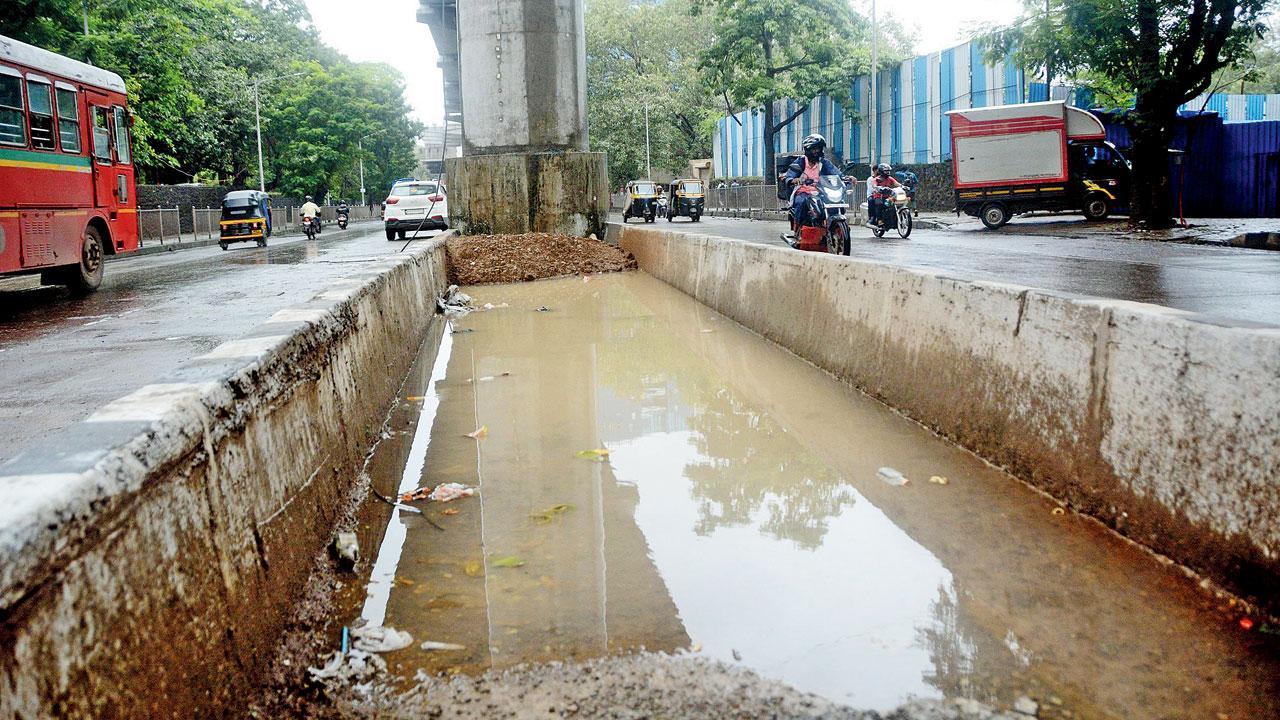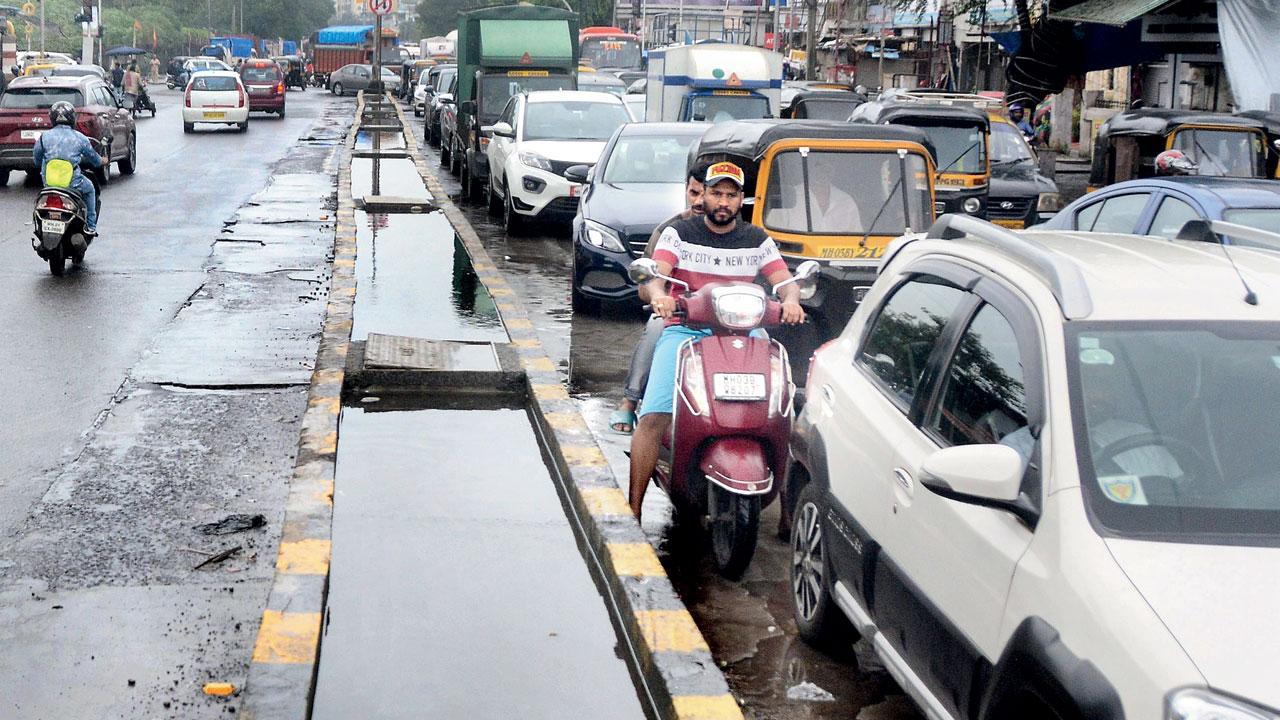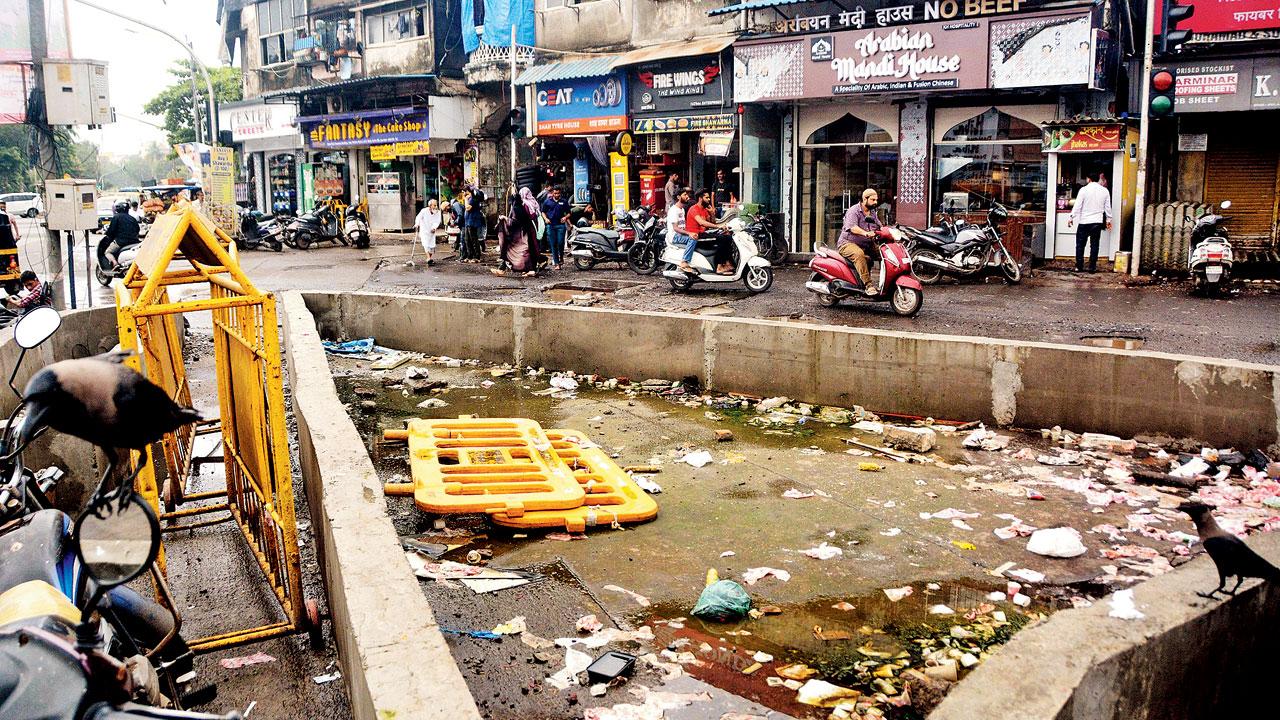Road dividers with deep cavities filled with water or filth at many locations in city, raise fears of malaria and dengue

Pics/Sayyed Sameer Abedi
The civic body’s initiative to install road dividers with deep pocket-like gaps to grow plants could be creating mosquito breeding spots in the city and suburbs. With several of these median pieces yet to be packed with soil, rainwater has accumulated in them. The little long pools have emerged at a time when the city reported 39 malaria and 7 dengue cases in the first 3 days of this month.
ADVERTISEMENT
The road dividers with cavities have been installed to facilitate plantation and beautification. mid-day visited several locations where locals have been complaining of mosquito menace. More such spots in the eastern suburbs.
Also read: Mumbai: BMC considers another extension for Marathi signboards
Kurla LBS Road, opposite Kalpana talkies
The divider pieces have been neatly placed but none has the red soil needed to grow plants. Instead, all are filled with water and look like drains with no outlet. “This place has become more of a risk job due to such haphazard work despite spending crores on planning. The beautification has unknowingly become a risk for residents,” local resident and activist Anil Galgali said.
Vikhroli-Powai Parksite junction

Besides the dividers with stagnant water, a lot of areas have been dug up for Metro work. As a result, the stretch from Powai junction to Vikhroli road junction has become a potential place for mosquito breeding. The dividers along the Metro pillars have no soil. Even the barricades have been turned upside down, causing more water to accumulate.
Vidyavihar, opposite Zam Zam junction

At this spot, the BMC has plans to create a small garden. While the borders and edges have been built, there is no soil. It looks like a big tank filled with filth, creating an ideal environment for mosquitoes to grow and spread malaria and dengue.
“The BMC’s only focus is south Mumbai and they always neglect the suburbs. If proper care is not taken in simple matters like this, there are no words on what to say to such apathy which puts citizens at risk,” civic activist Godfrey Pimenta said.
Officials promise action
A senior civic official, requesting anonymity, said that during a meeting to tackle mosquitos, the municipal commissioner had specifically asked officials and other authorities working in the city to take preventive measures. “Any place where water accumulates for more than seven days is a potential mosquito breeding ground. Our teams are on the lookout, and they try to fix as many as possible. It is an annual affair,” he said.
Rajan Naringrekar, head of BMC’s insecticide department, also promised action. “Once a dry spell starts, we will clear all such potential mosquito breeding places where rainwater has accumulated. We have already asked all authorities concerned to take preventive action regarding mosquito breeding spots. We will reiterate the instructions to the authorities. We will initiate action and penalise those who are responsible if the situation does not change even after that.”
 Subscribe today by clicking the link and stay updated with the latest news!" Click here!
Subscribe today by clicking the link and stay updated with the latest news!" Click here!







